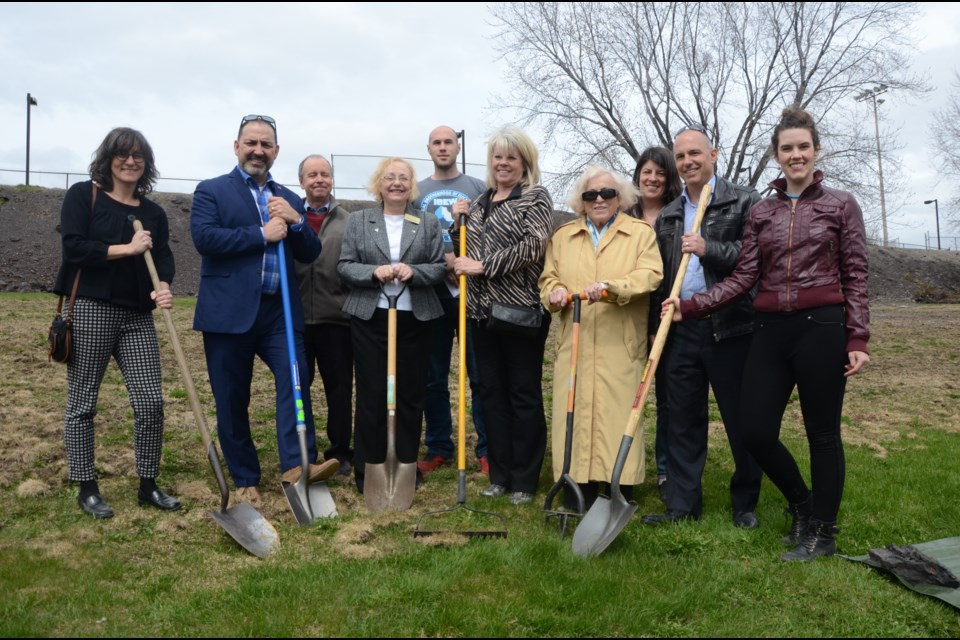A $37,100 Trillium grant planted the seeds for Sudbury's first food forest.
A groundbreaking ceremony took place May 5 to officially begin the foot work on the project. Over the next few weeks, dozens of volunteers will be planting shrubs and herbaceous plants at Delki Dozzi Park, the site of the food forest, but most of the planting will take place May 12-14, said Carrie Regenstreif, executive director, Sudbury Shared Harvest.
Sudbury Shared Harvest and reThink Green are spearheading the project, which will see more than 30 types of plants spread out over 4,200 square feet of land. A community food forest is a carefully planned arrangement of edible, perennial plants designed to mimic a natural forest. The ultimate goal is to have the food forest become self sustaining, with no maintenance required.
“Some of the things you can expect to see here will be asparagus, strawberries, raspberries and apples,” she said.
Some lesser known plants — like Good King Henry and Sweet Cicely — were chosen for a set of desirable qualities that include some combination of being native to the Sudbury area, cold-hardy, highly nutritious, resistant to drought, able to fix nitrogen or likely to attract pollinators.
“They've all been chosen by a committee that has been researching for months and months on the best kinds of things to plant, and they are all hardy for our climate, so they won't die over the winter,” Regenstreif said.
The food forest will be open to everyone, she said.
“We're hoping people will come out and work with us, too, to help with the maintenance of the food forest,” she said.
The idea stems from similar projects done in other cities, Regenstreif said. She put the idea on Facebook, and it seemed to grow from there.
“I think the idea of growing food close to home, and not having it come from thousands of miles away, is really appealing to people.
“Part of this is about education, and having people realize the types of plants you can grow here. We will teach people how to grow these types of things in their own yards.”
When the food forest will start to bear fruit will depend on the plant, she said. For example, it's likely there won't be a huge amount of apples for about five years.
“It probably isn't going to look like much when it's first planted,” she said.
As a pilot project, Regenstreif said the plan is to gauge the level of interest and community involvement, and then look at growing food forests in other areas of the city.
The committee is looking for donations of hardy Italian oregano, chives, orange daylillies and hostas.
Next weekend, Bonita Ford, a food forest expert from Perth, will be in Sudbury to supervise the planting and present several workshops. Those workshops are free for anyone willing to help with planting and maintenance of the food forest.
For more information, visit SudburySharedHarvest.ca.
